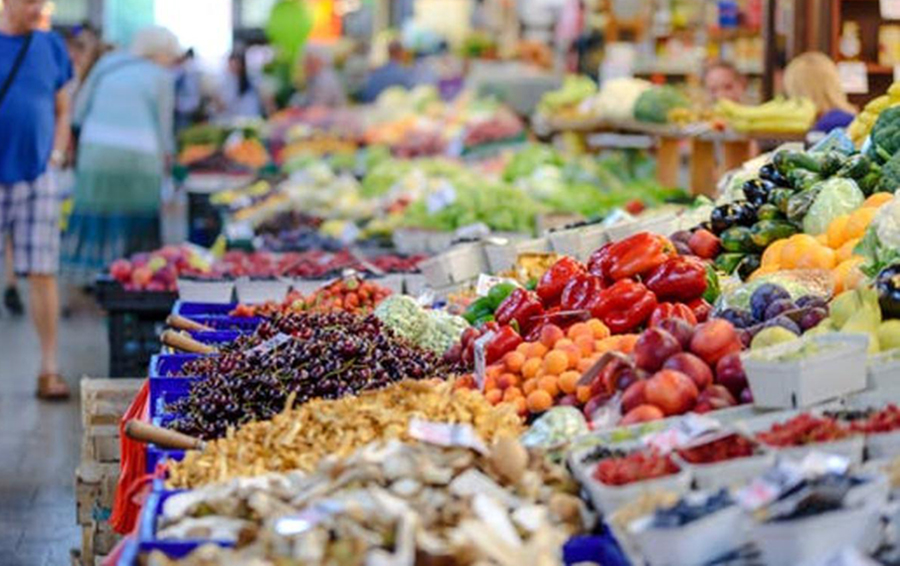Nigeria’s food inflation has risen by 110.5% in 5 years, between September 2015 and September 2020.
A comparison of the Composite Food Index within the period under review indicated that food inflation rose from 181.8 index points to 382.7 index points.
This means that the price of food items has not only increased, but more than doubled in the last five years of President Muhammadu Buhari’s administration.
READ: UPDATED: Inflation rate jumps to 12.40%, highest in over 2 years
Explore the Advanced Financial Calculators on Nairametrics
Similarly, the All Items Index rose by 92.4% during the same period.
Food items that have witnessed significant increases
Data obtained from Nairalytics, the research arm of Nairametrics, revealed that:
- Foreign rice (Caprice) which sold for an average of N14,500 as of May 2019 is now sold for an average of N30,000.
- A 50kg bag of Ijebu garri that sold for N7,200 in May 2019, now costs N13,700.
- A 25-litre keg of vegetable oil sold for N9,750 in May 2019, now sells for N14,625.
- A piece of frozen fish which cost N417 in May 2019, now sells for N625.
READ: Buhari’s CBN policies may drag Nigerian economy into crisis – Fitch
READ: Debt servicing gulps N7.04 trillion under President Buhari’s administration
Why are the figures going up?
The hike in the cost of staple food items could be attributed to the border closure directive of the federal government that was announced in August 2019.
It is projected to hit 20% by the first quarter of 2021, when the effects of the increase in petrol and electricity prices are accounted for.
Also, yield per hectare for most farming is well below global standards, driving up the cost of whatever is left to be sold to Nigerians.
Farmers also face insecurity, flooding, and sometimes famine affecting their ability to plant and harvest. Even after harvesting, supply chain challenges still persist, leaving farmers to contend with middlemen, transportation, and storage. The result is far less farm produce reaching the final consumer.
READ: Sanusi declares Nigeria under Buhari a Bankrupt Nation
READ: Nigeria must keep inflation down to maximise full potential – IMF
What they are saying
Prof. Steve Hanke, an American Applied Economist at the Johns Hopkins University in Baltimore, Maryland, USA, expressed his dissatisfaction over the performance of Buhari’s administration.
According to him, the Federal Government could do more than what it is doing; he described the administration as a failure over security of its citizens, unemployment, and inflation.
He tweeted, “President Muhammadu Buhari has failed. Nigeria is in the grip of chaos. Bandits control major highways.
“The government can’t protect its own citizens from Boko Haram or the corrupt Police. Unemployment stands at 27.1%, and Inflation, which I accurately measure every day and that soars at 30.37%/yr.”
READ: Nigeria’s inflation rate rises to 12.56% in June, as food prices surge
READ: More agriculture loans but longstanding bottlenecks remain
.@MBuhari has failed. #Nigeria is in the grip of chaos. Bandits control major highways. The government can’t protect its own citizens from #BokoHaram or the #Corrupt police. #Unemployment stands at 27.1%, and #Inflation – which I accurately measure every day – soars at 30.37%/yr. pic.twitter.com/LZOzHWkiau
— Steve Hanke (@steve_hanke) October 28, 2020
READ: Northern States worst hit as Nigeria’s inflation jumps to 11.85% in November
What you should know
- On October 15, 2020, Nairametrics reported that Nigeria’s inflation rate rose to 13.71% (year-on-year) in September 2020, indicating 0.49% point higher than 13.22% recorded in August 2020. This was contained in the Consumer Price Index (CPI) report, released by the National Bureau of Statistics (NBS) about two weeks ago.
- According to the report, Nigeria has endured persistent increase in inflationary rate —growing from 12.13% in January to 13.71% in September—the highest recorded in 30 months.
- A closely watched component of the food inflation index rose by 16.66% in September 2020 — a 0.66% increase compared to 16% recorded in the previous month.
- On a month-on-month basis, the food sub-index rose by 1.88% compared to 1.67% recorded in August 2020.
- Meanwhile, the rise in the food index was caused by increases in prices of bread and cereals, potatoes, yam and other tubers, meat, fish, fruits, and oils and fats.
















